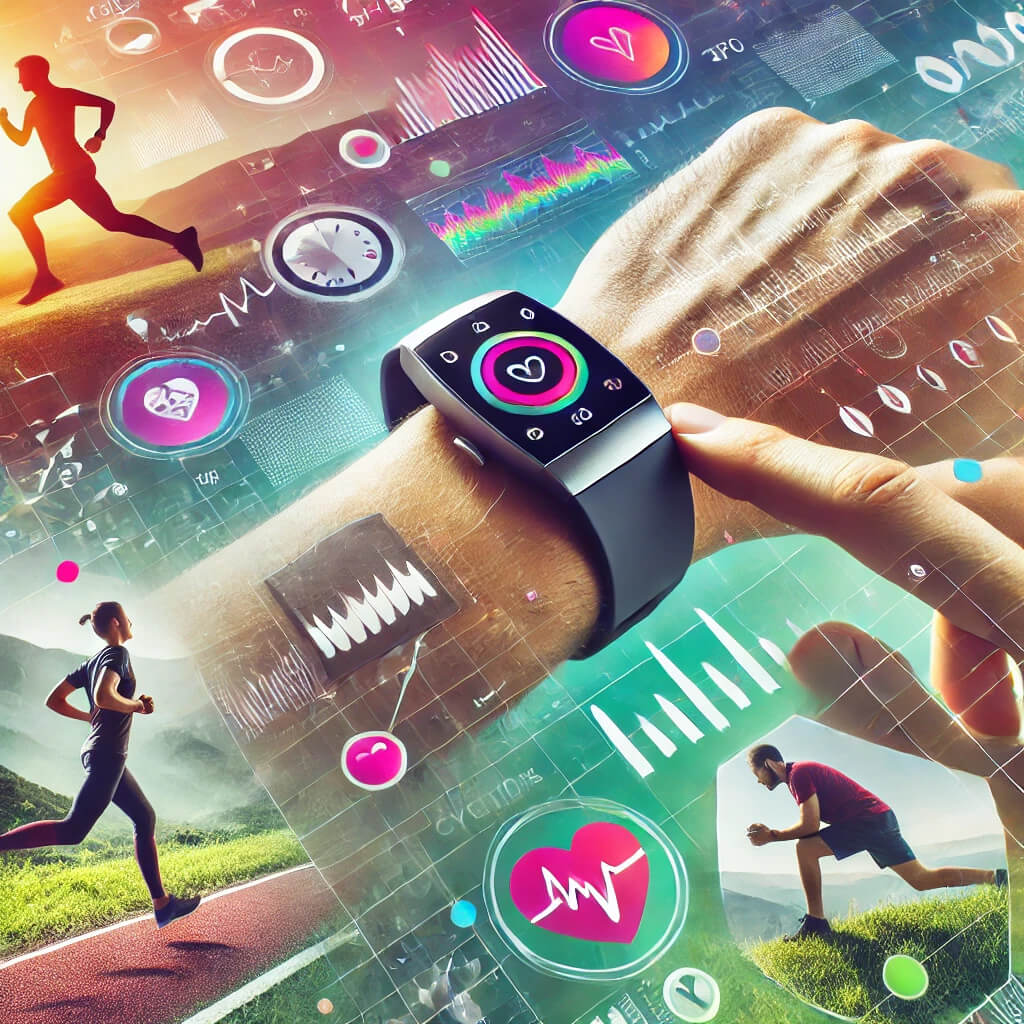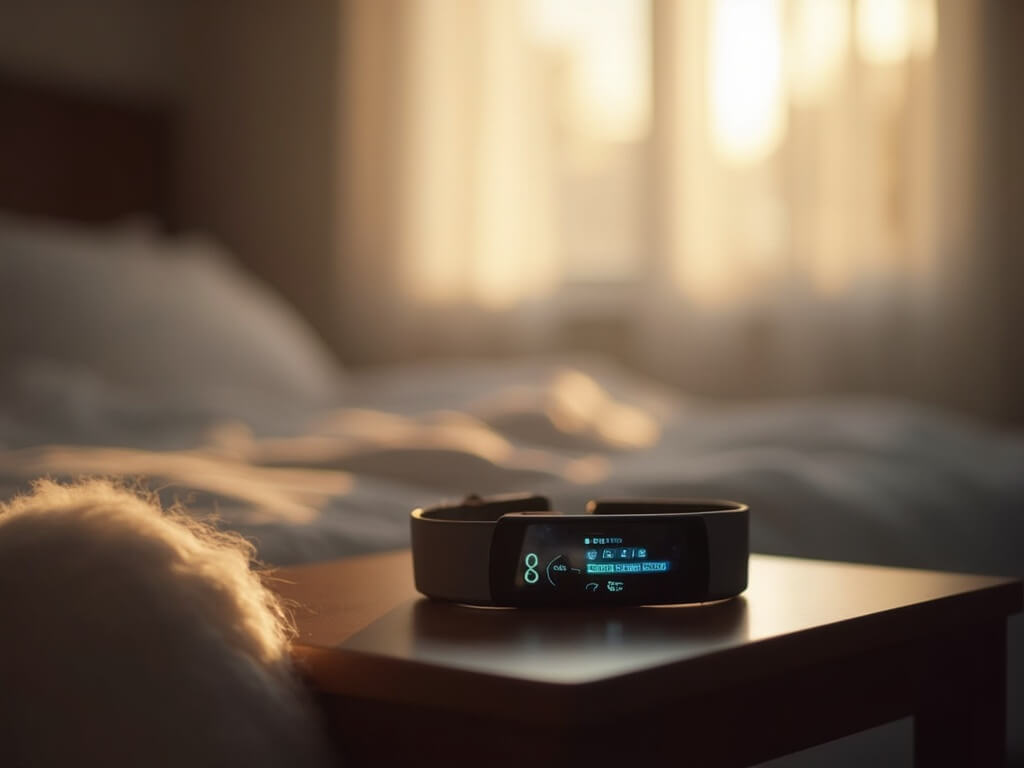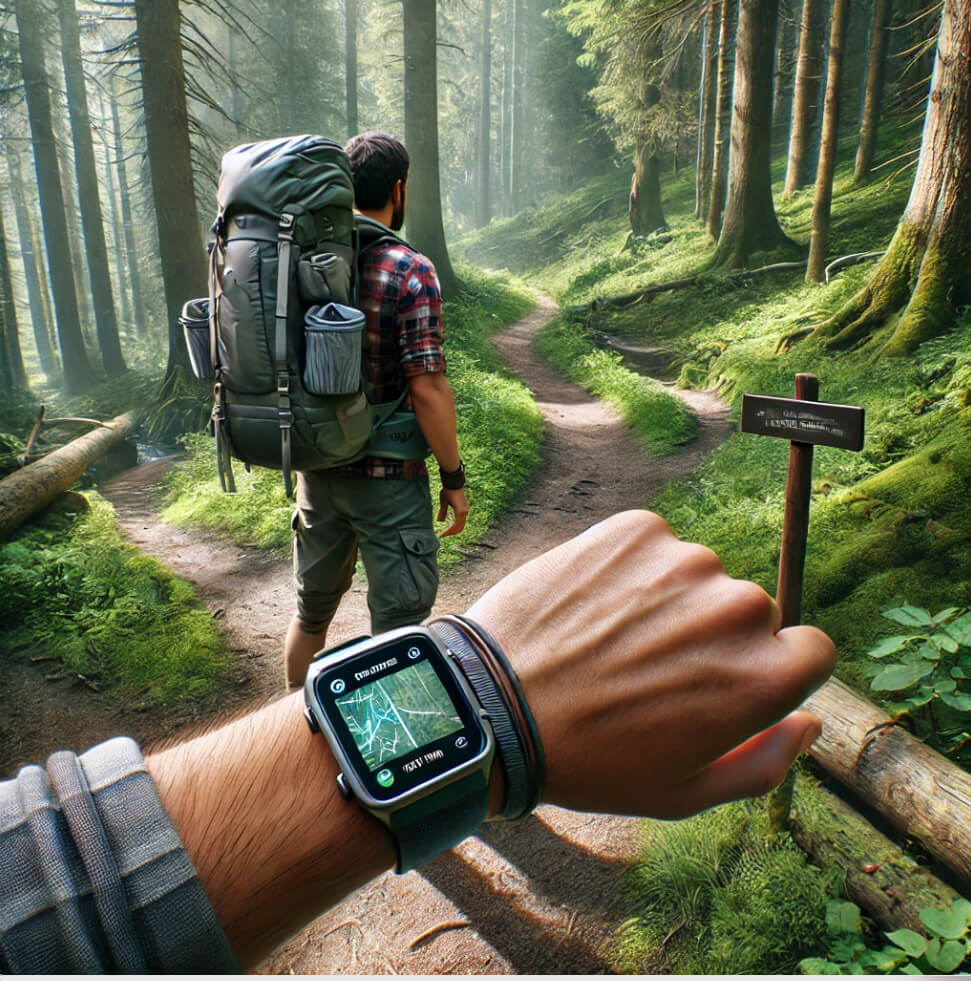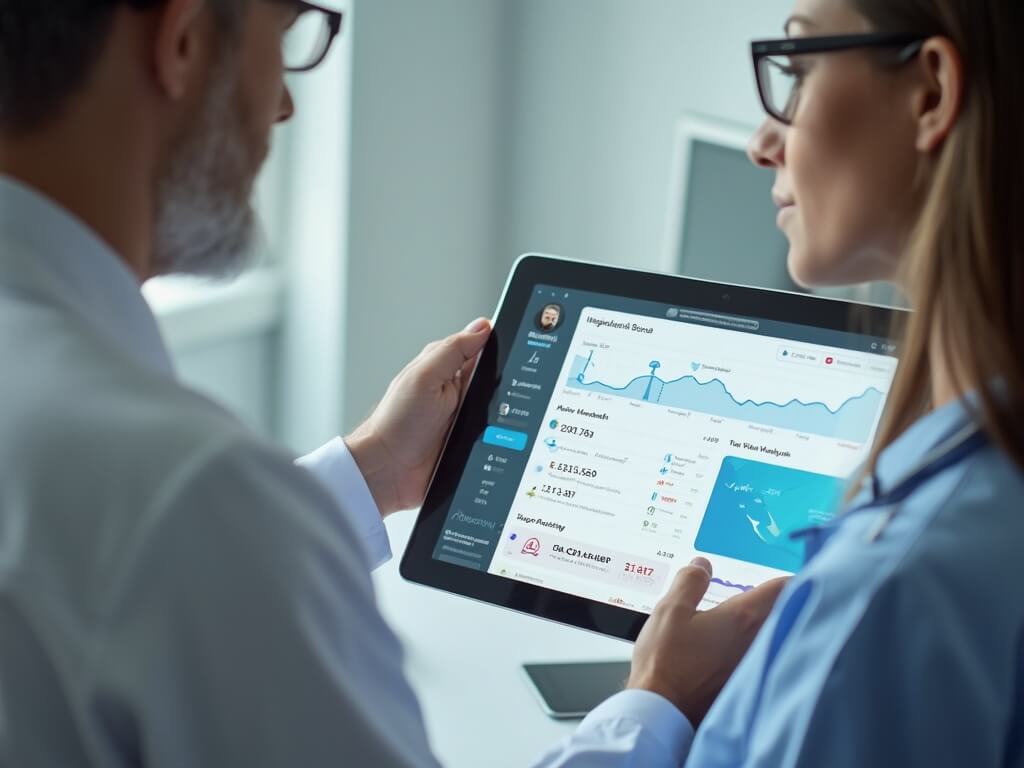Unveiling the Truth: The Surprising Accuracy of Fitness Trackers in 2024
From step counters to health guardians, fitness trackers have come a long way. As a fitness enthusiast and tech expert, I’ve been closely following their evolution over the years. Today, I’m excited to share my insights on the accuracy of these devices in 2024. Get ready to discover how far we’ve come and what you can really trust when it comes to your wearable tech.
The Fitness Tracker Revolution: More Than Just a Step Counter
Remember when fitness trackers were glorified pedometers? Those days are long gone. In 2024, these devices have transformed into sophisticated health monitors that can track everything from your heart rate to your sleep patterns. But the burning question remains: just how accurate are they?
The fitness tracker market has seen significant growth, with a projected Compound Annual Growth Rate (CAGR) of 14.32% from 2024 to 2032. By 2028, the market size is expected to reach a staggering $16,909.84 million. This growth is driven by increasing health consciousness and the integration of advanced technologies like AI and machine learning into these devices.
Heart Rate Monitoring: Beating with Precision

Your heart’s rhythm is now captured with unprecedented accuracy. According to recent studies, high-end fitness trackers now offer heart rate measurements that are within 5% of medical-grade monitors. That’s impressive progress!
For instance, devices like the Fitbit Charge 6 now feature improved heart rate algorithms that provide more accurate tracking, especially during intense workouts. Some models even include FDA-cleared EKG sensors, bringing us closer to medical-grade accuracy in consumer devices.
However, it’s important to note that while wrist-worn optical heart rate sensors have become increasingly accurate, they may still struggle during high-intensity activities. Chest strap monitors continue to provide the most reliable data for intense workouts.
Step Counting: Walking the Talk
Every step you take, every move you make, your fitness tracker is watching you. In 2024, most current models can count steps with an accuracy of ±100 steps for up to 10,000 steps. That’s a level of precision that can truly help you track your daily activity with confidence.
However, the accuracy can vary depending on your movement. Slow walks or unusual gaits might still pose challenges for some devices. Always remember, consistency in wearing your device is key to getting the most accurate results over time.
Sleep Tracking: Dream or Reality?

Your fitness tracker now knows more about your sleep than you do. In 2024, we’re seeing significant strides in sleep tracking technology, but it’s not without its challenges.
Today’s fitness trackers can reliably measure your sleep duration and even differentiate between light, deep, and REM sleep stages. Devices like the Oura Ring Generation 3 are pushing the boundaries, monitoring an impressive array of metrics including heart rate, body temperature, and movement to evaluate sleep quality.
Calorie Burn: The Trickiest Metric
Counting calories burned? Take those numbers with a grain of salt. If there’s one area where fitness trackers still struggle, it’s estimating calorie burn. My analysis of recent studies shows that the error in calorie estimation from wearable devices can range from -23% to +41% compared to indirect calorimetry (the gold standard for measuring energy expenditure).
GPS Accuracy: Finding Your Way

Lost in the woods? Your fitness tracker might just be your best friend. High-end devices now offer multi-system GNSS support, which means they can connect to multiple satellite systems (like GPS, GLONASS, and Galileo) for improved accuracy. The Garmin Fenix 7 series, for example, has been highlighted for its advanced GPS capabilities.
The Power of User Engagement
Your fitness tracker is only as good as how you use it. Studies have shown that using a fitness tracker can increase your daily step count by an average of 1,800 steps and add 40 minutes of walking per day. This “motivation effect” is a powerful testament to the potential of these devices in promoting healthier lifestyles.
The AI Revolution: Smarter Tracking for Better Results
Your fitness tracker is getting smarter, and it’s all thanks to AI. Artificial intelligence and machine learning are taking accuracy and personalization to new heights. AI-powered algorithms are now capable of learning your unique patterns and behaviors, leading to more accurate activity recognition and personalized insights.
Privacy and Data Security: The Hidden Challenge
Your fitness tracker knows a lot about you. But who else does? As fitness trackers become more sophisticated and collect more personal health data, privacy and data security have become significant concerns. Modern fitness trackers collect a wealth of sensitive information, from your heart rate and sleep patterns to your location data.
Many manufacturers have responded to these concerns by implementing enhanced encryption methods and giving users more control over their data. However, as a user, it’s important to be aware of what data your device is collecting and how it’s being used. Always read the privacy policies and understand your rights regarding your personal data.
Integration with Healthcare: A Glimpse into the Future

Your fitness tracker might soon be your doctor’s new best friend. One of the most promising trends in the fitness tracker industry is the increasing integration with healthcare systems. In 2024, we’re seeing more and more examples of how data from fitness trackers can be used to support clinical decision-making and personalized healthcare.
The Bottom Line: Trust, but Verify
Your fitness tracker is a powerful tool, but it’s not infallible. After diving deep into the world of fitness tracker accuracy in 2024, I can confidently say that we’ve come a long way. Today’s devices offer remarkable accuracy in many areas, particularly in heart rate monitoring, step counting, and GPS tracking.
However, it’s important to remember that these are consumer devices, not medical-grade equipment. My advice? Use your fitness tracker as a valuable tool in your health and fitness journey, but don’t rely on it exclusively. Pay attention to how you feel, and use the data from your tracker as one piece of the puzzle in understanding your overall health and fitness.
Remember, the most accurate fitness tracker is the one you use consistently. So find a device that fits your lifestyle, engage with it regularly, and use the insights it provides to motivate and guide you towards your fitness goals.
Frequently Asked Questions
How accurate are fitness trackers in measuring heart rate?
In 2024, high-end fitness trackers can measure heart rate with an accuracy within 5% of medical-grade monitors. However, accuracy may decrease during high-intensity activities.
Can I trust the calorie burn estimates from my fitness tracker?
Calorie burn estimates are among the least accurate metrics, with errors ranging from -23% to +41%. Use these estimates as a general guide rather than an exact measurement.
How accurate is GPS tracking in fitness trackers?
GPS accuracy has significantly improved, especially in high-end devices with multi-system GNSS support. However, environmental factors like tall buildings or dense tree cover can still affect accuracy.
Are sleep tracking features in fitness trackers reliable?
Sleep tracking has improved, especially in devices like the Oura Ring Generation 3, but it’s not as accurate as professional sleep studies. Fitness trackers can give you a good general picture of your sleep patterns, but shouldn’t be used for diagnosing sleep disorders.
How can I ensure I’m getting the most accurate data from my fitness tracker?
Wear your tracker consistently and correctly, use activity-specific modes when available, keep your device’s firmware updated, and remember that consistent trends are often more important than individual data points.
How accurate is GPS tracking in fitness trackers?
GPS accuracy has significantly improved, especially in high-end devices with multi-system GNSS support. However, environmental factors like tall buildings or dense tree cover can still affect accuracy. In general, you can expect accuracy within 2-3 meters in optimal conditions.
Are sleep tracking features in fitness trackers reliable?
Your sleep data: more than just a dream? Sleep tracking has improved, especially in devices like the Oura Ring Generation 3, but it’s not as accurate as professional sleep studies. Fitness trackers can give you a good general picture of your sleep patterns, but shouldn’t be used for diagnosing sleep disorders.
Most trackers can accurately measure total sleep time and wake time. However, the accuracy in distinguishing between sleep stages (light, deep, REM) varies widely. Factors like age, sleep disorders, and device placement can affect accuracy. If you’re concerned about your sleep quality, it’s always best to consult with a healthcare professional.
How can I ensure I’m getting the most accurate data from my fitness tracker?
Maximizing accuracy: it’s all in the details. Here are some tips to get the most accurate data from your fitness tracker:
- Wear your tracker consistently and correctly. Make sure it’s snug but not too tight on your wrist.
- Use activity-specific modes when available. Many trackers have different settings for running, cycling, swimming, etc.
- Keep your device’s firmware updated. Manufacturers often release updates that improve accuracy and add new features.
- Calibrate your device if it offers this option. This can improve step counting and distance measurement accuracy.
- Remember that consistent trends are often more important than individual data points. Look at your data over time to spot patterns and trends.
- For heart rate monitoring, wear the tracker slightly higher on your wrist (about 2-3 finger widths above your wrist bone) during exercise for better accuracy.
The Future of Fitness Tracking: What’s Next?
The next frontier: what does the future hold for fitness trackers? As we look ahead, several exciting trends are emerging in the world of fitness tracking:
1. Non-Invasive Health Monitoring
Researchers are working on ways to measure metrics like blood glucose levels and blood pressure without breaking the skin. This could be a game-changer for people with chronic conditions like diabetes.
2. Advanced Sleep Analysis
Future trackers may be able to detect sleep disorders like sleep apnea, providing early warnings for conditions that often go undiagnosed.
3. Emotional and Stress Tracking
By combining metrics like heart rate variability, skin temperature, and movement patterns, future devices might be able to gauge your emotional state and stress levels, offering tips for mental well-being.
4. AI-Powered Health Insights
As AI continues to advance, we can expect more sophisticated analysis of our health data, potentially predicting health issues before they become serious.
5. Integration with Smart Home Devices
Imagine your fitness tracker communicating with your smart home to adjust lighting, temperature, and even suggest recipes based on your activity levels and nutritional needs.
Conclusion: Embracing the Fitness Tracking Revolution
The future is here, and it’s strapped to your wrist. Fitness trackers have come a long way since their inception, evolving from simple step counters to sophisticated health monitoring devices. In 2024, we’re seeing unprecedented levels of accuracy in many aspects of fitness tracking, from heart rate monitoring to GPS tracking.
However, it’s important to remember that while these devices are incredibly useful tools, they’re not perfect. They have limitations, and their accuracy can vary depending on a variety of factors. The key is to use them as part of a holistic approach to health and fitness, combining the data they provide with your own bodily awareness and professional medical advice when needed.
As we look to the future, the potential of fitness trackers is truly exciting. With advancements in AI, sensor technology, and healthcare integration, these devices are poised to play an even bigger role in our health and wellness journeys. They’re not just tracking our fitness anymore – they’re becoming proactive partners in our overall health.
So, strap on your fitness tracker, embrace the data, but always listen to your body. After all, the most important fitness tracker is the one between your ears. Here’s to a healthier, more informed future for all of us!








